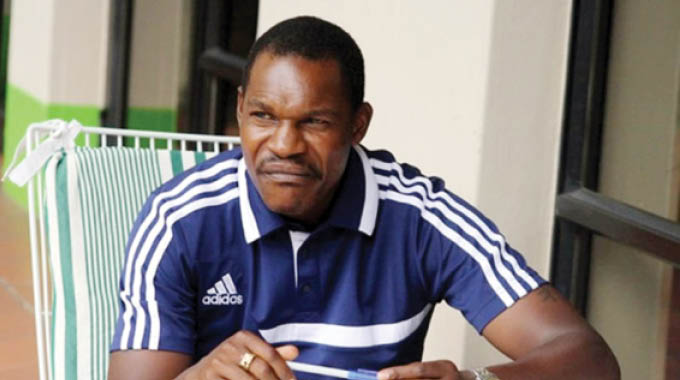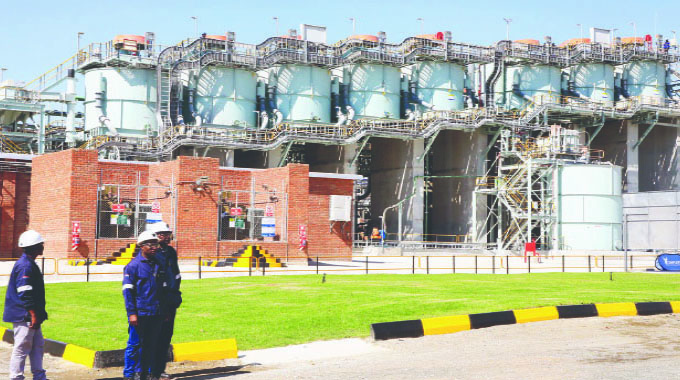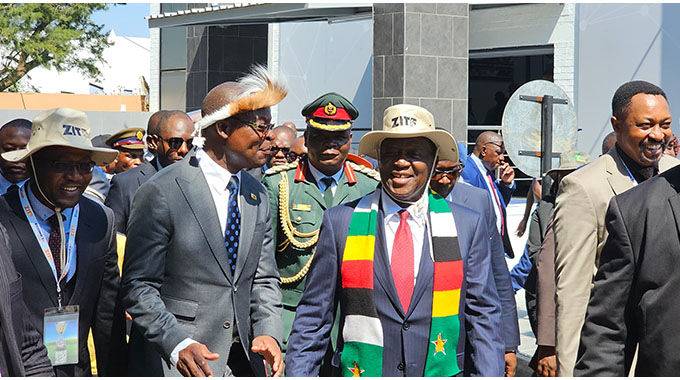Stereotypes limit potential of people with Down’s Syndrome

Amos Mpofu, [email protected]
STEREOTYPE remains the biggest challenge facing people living with Down’s Syndrome in the country despite progress made by the Government in creating a conducive environment for them.
This emerged during the annual World Down’s Syndrome Day commemorations, hosted by the Zimbabwe Down’s Syndrome Association in Bulawayo on Thursday
The day is marked yearly on March 21 to raise awareness about Down’s Syndrome, a condition in which a person has extra chromosomes, which are small “packages” of genes in the body.
The chromosome determines how a baby’s body forms during pregnancy and how the baby’s body functions as it grows in the womb and after birth. Typically, a baby is born with 46 chromosomes and babies with Down’s Syndrome have an extra copy of one of these chromosomes.
Speaking during the commemorations, Mr Pick Nkomwa, director of Nkomwa Trust, which advocates for the rights of people living with Down’s Syndrome said lack of education about the condition was causing negative stereotypes.
“All over the world on this day, events are held to amplify the voices of people with Down’s Syndrome, highlighting their vital role in our communities and calling for their full participation in anything that affects their lives,” he said.
“Together we can create a single global voice advocating for the rights, inclusion and well-being of people with Down Syndrome.
“Stereotypes are harmful for people with Down’s Syndrome and intellectual disabilities, stereotypes can stop us from being treated like other people.
“We get treated like children, we are underestimated and we are excluded from education, face barriers to good mental and physical healthcare, are denied opportunities to do fulfilling work and are barred from living independent lives. Sometimes we are treated very badly or even abused,” said Mr Nkomwa.
He praised the Government for creating a legal framework, that recognises people living with disabilities including those with Down’s Syndrome, thus, providing a powerful impetus to promote the human rights of all persons living with disabilities.
“We believe the enactment of the persons with disabilities bill into law will go a long way in transforming the needs of persons with disabilities. We call for an equal Zimbabwe where opportunities are available for both those with and without disabilities.
“We call upon all institutions from the family level, private and public, to embrace diversity and push for social inclusion in all their planning and programmes implementation,” he said.
Speaking at the same occasion, Zimbabwe Down’s Syndrome Association director, Ms Sibonisiwe Mazula, urged members of the public to respect people living with disabilities. She said some families hide people with disabilities at home due to stigma.
“In most cases, people who are with disabilities are hidden in the houses and they do not have a chance to interact with others, which deprives them of exposure. These people are excluded from a lot of community programmes, which is the main challenge they face,” she said.
“Communities should rather include them so that they recognise their capacities and better acquaint themselves with these people. If the community continues side-lining them they will not learn anything but rather stay stressed,” said Ms Mazula.
“The communities still believe that Down’s Syndrome is a product of witchcraft but it is not true because Down’s Syndrome is scientifically proven to be a genetic disorder. It’s just a genetic disorder in which people witch Down’s Syndrome have 47 chromosomes and people without disabilities have 46 chromosomes.
“What is important is for the people to appreciate that we are all God’s creation and on that basis we should embrace inclusivity, granting equal opportunities to everyone to foster understanding of our differences and solidarity,” said Ms Mazula.
The commemorations were held under the theme: “Ending the stereotypes” and were attended by persons with disabilities and various organisations working with people with Down’s Syndrome.










Comments